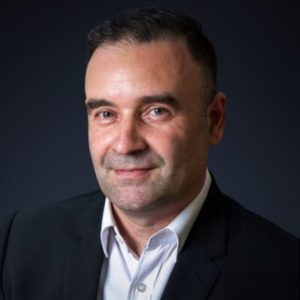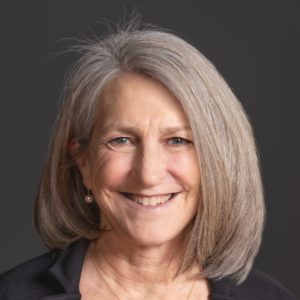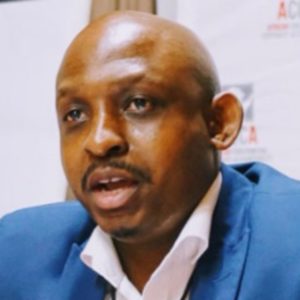ICOCA CONVENES FIRST MEETING OF NEWLY FORMED EXPERT ADVISORY GROUP
23/02/2022
News Highlights
Feb 23 & Mar 23, 2022 – As the International Code of Conduct Association approaches its tenth anniversary, ICoCA is engaging in a reflection on recent and current changes in private security with the aim to identify emerging issues, best practices and provide guidance on better respect for international standards. Bringing together cross-sectorial, multi-disciplinary and diverse perspectives, ICoCA has convened an Advisory Group composed of field experts, academics, and attorneys from all over the world who will play a consultative role to the Association to explore current and future trends. The group held its first meetings in February and March. Here are the main takeaways:
An Evergreen standard. The Code of Conduct and ICoCA began from a desire of the industry, civil society and governments to undo negative trends in private security and prevent risks and abuses. The drafters understood that circumstances change and issues that seemed irrelevant before can become momentous. The Code of Conduct can provide guidance for existing problems but also needs to be interpreted and reviewed in view of evolving realities on the ground and emerging new trends.
Human rights violations can happen quickly; correcting them takes time. We must be forward looking while maintaining standards on current issues. Once violations occur, resolutions can be painful or may even be impossible. We need clear delineations in new fields to help stakeholders avoid Human Rights violations in uncharted territory.
Renewed efforts are needed to make the case for responsible private security. With the help of the Advisory Group, ICoCA will continue developing and sharing its knowledge of the private security industry. To better understand and predict problems and hazards, we will collect and share relevant research and information on private security with a view to make the case for better adherence to International Humanitarian Law and Human Rights by security companies and their clients.
ICoCA is developing a new capacity for research and policy development. Under the direction of the ICoCA Board of Directors, the secretariat of ICoCA will conduct multidisciplinary research projects with academic and professional partners with a view to develop policy recommendations, guidelines or training tools for the sector. Our first three research projects will address the following issues:
- New technologies bring new hazards. Recent trends show that while traditional security companies are increasingly engaging in non-traditional technological-based actions, non-conventional security companies, such as software developers, are also engaging in the private security services. This research will focus must include both novel means and novel actors with a view to provide guidance to the sector on the use of advanced technologies.
- Private security needs further guidance to handle people in vulnerable situations. Private security companies are increasingly interacting with migrants, refugees, detainees and other groups of people in vulnerable situations. The management of borders or detention centres often falls outside the training of guards; this research project will aim at identifying gaps and best practices.
- Poor working conditions of guards often presage adverse events. All too often, security workers face poor working conditions, lack of training and discrimination. Security guards themselves are often drawn from vulnerable populations and considered dispensable. Poor working conditions may lead to Human Rights violations and abuses. This new research aims to identify best practices with a view to help companies raise their standards and convince their clients to invest in quality services.
The Academic Advisory Group will play a key role in the development of the ICoCA’s new research capacity and outreach. The Advisory Group has demonstrated an interest in acting as a sounding board to review research topics, methodologies, and findings. This involvement can ensure the academic rigour of our work and the soundness of our policy.
Finally, we need to develop our understanding of new trends in conflicts. From cyber operations to military training or logistics, the recent war in Ukraine has already seen many implications of private security actors. We need to monitor and document the situation and identify new possible trends in security and conflicts. This is done with the aim of providing guidance to security providers on how to operate in conflict situations while respecting International Humanitarian Law and Human Rights.
Advisory Group Members
 |
Dr. Alessandro Arduino
Principal Research Fellow, Middle East Institute (MEI), National University of Singapore
& Associate, Lau China Institute, King’s College London
Dr. Arduino’s two decades of experience in China encompasses security
analysis and crisis management. His main research interests include
private military and security companies, China, Central Asia and Middle
East and North Africa relations, and China’s security and foreign
policy. Dr. Arduino is the author of several books and he has published
papers and commentaries in various journals in Italian, English and
Chinese. His podcast, Boots off the Ground, discusses how uniformed
soldiers, or boots on the ground, are being replaced by private military
companies and automated weapons. His most recent book is China’s Private
Army: Protecting the New Silk Road (Palgrave, 2018). He has been
appointed Knight of Order of the Star of Italy by the president of the
Italian Republic. |
 |
Dr. Deborah Avant
Director, Sié Chéou-Kang Center for International Security and
Diplomacy, Distinguished University Professor and Sié Chéou-Kang
Chair, Josef Korbel School of International Studies, University of
Denver
Dr. Avant’s research has focused on civil-military relations, and the
roles of non-state actors in controlling violence and generating
governance. She is author/editor of Civil Action and the Dynamics of
Violence in Conflicts, The New Power Politics: Networks and
Transnational Security Governance; Who Governs the Globe?; The Market
for Force: the Consequences of Privatizing Security; and Political
Institutions and Military Change: Lessons From Peripheral Wars, along
with articles in such journals as International Organization,
International Studies Quarterly, International Studies Review, Security
Studies, Perspectives on Politics, and Foreign Policy. She was the
inaugural Editor-in-Chief of the Journal of Global Security Studies and
is President of the International Studies Association (2022-23). She is
an observer member of the ICoCA and, in 2013, was awarded an honorary
doctorate from University of St.Gallen for her research and contribution
toward regulating private military and security companies. |
 |
Anne-Marie Buzatu
Vice President & Chief Operations Officer, ICT4Peace
Foundation
Anne-Marie Buzatu is the Vice President and Chief Operations Officer of
ICT4Peace Foundation, and is a Member of the Board of the US-based
Friends of ICT4Peace Foundation. Previous to this, Ms. Buzatu was Deputy
Head of the Public-Private Partnerships Division at DCAF in Geneva where
she worked for nearly 12 years. In this role she led, under a Swiss
government mandate, the development of the International Code of Conduct
for Private Security Service Providers (ICoC), a multistakeholder
initiative which set out international human rights compliant principles
and standards for the private security industry. She subsequently led
the creation of the International Code of Conduct Association (ICoCA),
the mutistakeholder oversight mechanism for the ICoC, where she also
served as Interim Executive Director. |
 |
Dr. Andrew Clapham
Professor of International Law, the Graduate Institute of
International and Development Studies, Geneva
Andrew Clapham is Professor of International Law at the Graduate
Institute. He was the first Director of the Geneva Academy of
International Humanitarian Law and Human Rights (June 2006 – July 2014).
He teaches international human rights law, the laws of war, and public
international law. Prior to coming to the Institute in 1997, he was the
Representative of Amnesty International at the United Nations in New
York. Andrew Clapham has worked as Special Adviser on Corporate
Responsibility to High Commissioner for Human Rights Mary Robinson, and
Adviser on International Humanitarian Law to Sergio Vieira de Mello,
Special Representative of the UN Secretary-General in Iraq. He was
elected as a Commissioner of the International Commission of Jurists in
2013. He is currently serving as a member of the UN Commission on Human
Rights in South Sudan. |
 |
Dr. James Cockayne
Professor of Global Politics and Anti-Slavery, University of
Nottingham
James Cockayne is Professor of Global Politics and Anti-Slavery at the
University of Nottingham, and a member of the World Economic Forum
Global Futures Council on Equity and Social Justice. An external fellow
with both IISS and GCSP, Cockayne was an adviser to the Swiss Ministry
of Foreign Affairs during the negotiation of the Montreux Document, and
a civil society negotiator during the formation of ICoCA. Originally an
international lawyer, for the last two decades Cockayne has worked on
the global governance of business and non-state actors, moving between
academia, public service and private practice. Between 2013 and 2020,
Cockayne led the United Nations University’s presence in New York,
advising UN leadership on modern slavery, counterterrorism, human
rights, development policy, cybergovernance, drug policy and migration.
During that period he gave invited briefings to the UN Security Council,
Human Rights Council, and Economic and Social Council. He also founded
Finance Against Slavery and Trafficking, and later chaired the US
Council on Foreign Relations study group on human trafficking. Cockayne
was previously Co-Director of the Centre for Global Counterterrorism
Cooperation, directing work on the UN and Africa; Senior Fellow at the
International Peace Institute; Principal Legal Officer in the
Transnational Crime Unit of the Australian Attorney-General’s
Department; and worked in the law in Australia, France, Sierra Leone and
Tanzania. He received his Ph.D. in War Studies from King’s College
London in 2015, LL.M. from NYU School of Law in 2005, and the University
Medal in Government and Public Administration (2000) and LL.B. (Hons I)
(2002) from the University of Sydney. Cockayne is a member of the
Advisory Board of the Journal of Modern Slavery, and was a
member of the Editorial Committee for the
Journal of International Criminal Justicefrom 2005 to 2017
(Chair 2007-2008). |
 |
Dr. Gary Corn
Director of the Law, Technology & Security Program, the American
University Washington College of Law
Gary Corn is the Director of the Technology, Law & Security Program
and Adjunct Professor of Cyber and National Security Law at American
University Washington College of Law; a Senior Fellow in Cybersecurity
and Emerging Threats at the R Street Institute; a member of the
Editorial Board of the Georgetown Journal of National Security Law and
Policy, a member of the American Bar Association Standing Committee on
Law and National Security, and the Founder and Principal of Jus Novus
Consulting, LLC. A retired U.S. Army colonel, Corn previously served as
the Staff Judge Advocate to U.S. Cyber Command, as a Deputy Legal
Counsel to the Chairman of the Joint Chiefs of Staff, the Operational
Law Branch Chief in the Office of the Judge Advocate General of the
Army, the Staff Judge Advocate to United States Army South, on detail
as a Special Assistant United States Attorney with the United States
Attorney’s Office for the District of Columbia, and on deployment to the
former Yugoslav Republic of Macedonia as part of the United Nations
Preventive Deployment Force and as the Chief of International Law for
Combined Forces Command, Afghanistan. Corn has published numerous
articles, book chapters, and blog posts, including in the American
Journal of International Law, The Temple International and
Comparative Law Journal, the Vanderbilt Journal of Transnational Law,
and on Lawfare, Just Security, Articles of War, and Modern Warfare
Institute. He received a JD from the George Washington University, a BA
in International Relations from Bucknell University, an LLM in Military
Law from the U.S. Army Judge Advocate General’s Legal Center and School,
and an MA in National Security Studies from the United States Army War
College. He is also a graduate of the Escola de Comando e Estado Maior
do Exército do Brasil (Command and General Staff College of the
Brazilian Army). |
 |
Dr. Daria Davitti
Associate Professor, Public International Law, Lund University
Professor Daria Davitti holds a PhD in Law and LLM
(Master in Law, with specialization in Human Rights) from the University
of Nottingham (UK) where until 2021 she worked as Assistant Professor in
Law and Head of the Human Rights Law Centre’s Forced Migration Unit. She
is currently Associate Professor (docent) in Public International Law at
Lund University, Faculty of Law (Sweden) where she co-leads the Just
Transition project, focusing on sustainability and the implementation of
the European Green Deal. Her research, more broadly, focuses on the
implementation of international law and international human rights law
in complex contexts, such as situations of armed conflict, climate
breakdown, forced migration, and humanitarian emergencies. She examines
the obligations and responsibility of states, international
organizations (including international financial institutions), and
private companies operating in such contexts, especially in relation to
the privatization of migration and the relevance of impact investing in
refugee responses. Prior to joining academia, Professor Davitti served
as a human rights field officer with the United Nations (both the former
Department of Peacekeeping Operations, DPKO, and the Office of the High
Commissioner for Human Rights, OHCHR), and was deployed in Afghanistan
from 2006 to 2009. Her research on Afghanistan has been published in a
recent monograph with Hart Publishing (2019) on the protection of the
right to water in the context of extractive sector investment. |
 |
Sabelo Gumedze
Adjunct Professor, Department of Public Law, Nelson Mandela
University, South Africa & Deputy Director, Training and
Communication (Ag.), Private Security Industry Regulatory Authority
(PSIRA), South Africa
Prof Sabelo Gumedze is an Adjunct Professor in the Department of Public
Law, Nelson Mandela University, South Africa. He is the Deputy Director:
Training and Communication (Ag.) at Private Security Industry Regulatory
Authority, Pretoria, South Africa. Prof Gumedze is the Vice-Chairperson
of the Working Group of Experts on People of African Descent, which is
part of the Special Procedures of the United Nations Human Rights
Council. He was a Senior Researcher of the Conflict Prevention and
Peacebuilding Division at the Institute for Security Studies in
Pretoria, South Africa. Prof Gumedze holds a Doctor of Social Sciences
in International Law and a Licentiate in Social Science (International
Law) from Åbo Akademi University (Finland), respectively. He also holds
a Master of Laws degree in Human Rights and Democratisation in Africa
from the University of Pretoria; a Bachelor of Laws and Bachelor of Arts
in Law degrees from the University of Swaziland, respectively. |
 |
Dr. Mohamad Janaby
Assistant Professor, Islamic University, Iraq
Dr. Janaby obtained PhD in Law from the University of Aberdeen, School
of Law. His PhD thesis analysed “The Legal Regime Applicable to Private
Military/Security Company Personnel in Armed Conflicts” and has since
been published as a book by Springer. In this thesis, he established the
classification of PMSC personnel under International Law (whether they
are mercenaries, combatants and civilians) and the legal regulation of
PMSCs, including the applicability of Human Rights Law, when these
companies are hired to participate in armed conflicts. The methodology
used to deal with the research question relies on the type of the
clients hiring these companies. The regulations of PMSCs and the
classification of their personnel rely on whether they are used by
states, UN (as peacekeepers), humanitarian organisations or armed
groups. He also holds a Master degree in International Law from the
University of Babylon (Iraq) and a Diploma in International Peace
Studies from the International University Centre for Peace Missions,
Helsinki/Spain. He is an Associate Fellow of Higher Education Academy. |
 |
Dr. Anna Leander
Professor of International Relations/Political Science, Graduate
Institute of International and Development Studies, Geneva &
Professor of International Relations, Pontifical Catholic University,
Rio de Janeiro
Anna Leander is Professor of International Relations/Political Science.
Since 2013, she has been Professor of International Relations at the
Pontifical Catholic University of Rio de Janeiro, where she will
continue to teach a few weeks per year. She previously held positions at
Central European University in Budapest, the Copenhagen Peace Research
Institute, the University of Southern Denmark, the Copenhagen Business
School, the Hanse-Wissenschaftskolleg, the Collegio Carlo Alberto and
the Judith Reppy Institute for Peace and Conflict Studies at Cornell
University. Her research is in International Political Sociology. She
has worked extensively with practice theoretical approaches and she has
a longstanding interest in the commercialisation of military/security
matters. She recently published the Routledge Handbook of Private Security Studies (2016, edited with Rita Abrahamsen) as well as articles in the European Journal of Social Theory, Environment and Planning: Society and Space, the Leiden Journal of International Law and International Studies
Perspectives. Her current research focuses on the politics of digital, aesthetic
and legal practices. |
 |
Dr. Sean McFate
Senior Fellow, the Atlantic Council & Professor, National Defense
University & Georgetown University, School of Foreign Service
Dr. Sean McFate is a Senior Fellow at the Atlantic Council, a Washington
DC think tank, and a professor at: Georgetown University’s School of
Foreign Service, Syracuse University’s Maxwell School, and the National
Defense University. His career began as an officer and paratrooper in
the U.S. Army’s 82nd Airborne Division, and then he became a private
military contractor. His book The Modern Mercenary: Private Armies and
What They Mean for World Order (Oxford Univ Press) examines why private
warfare has returned and its implications; Foreign Affairs hailed it as
“essential reading.” The New Rules of War: Victory in an Era of Durable
Disorder has been translated into ten languages, and was named a “Book
of the Year” by The Economist. McFate has written three novels based on
his private military experiences. His latest thriller is High Treason,
and #1 New York Times bestselling author James Patterson said: “Sean
McFate just might be the next Tom Clancy, only I think he’s even
better.” McFate has written for the New York Times, Washington Post, The
Atlantic, Foreign Policy, War on the Rocks, and similar outlets. He has
appeared on CNN’s Amanpour, Morning Joe, Fox and Friends, NPR, BBC,
Vice/HBO, and The Discovery Channel. McFate holds a BA from Brown
University, MPP from the Harvard Kennedy School of Government, and a
Ph.D. in international relations from the London School of Economics and
Political Science (LSE). |
 |
Dr. Sorcha MacLeod
Marie Curie Fellow and Associate Professor, University of Copenhagen
& Chair, UN working Group on Mercenaries
Sorcha MacLeod is a Marie Curie Fellow and Associate Professor at the
University of Copenhagen, Denmark. She is an international human rights
lawyer with an expertise in business, human rights and security.
Previously, she was a Lecturer in Law at the School of Law at the
University of Sheffield, UK and a Visiting Professor at Free University
Berlin. She holds a PhD in International Human Rights Law from the
University of Glasgow, as well as an LLM in International Natural
Resources Law and an LLB (Hons) in Scots Law from the University of
Dundee. She has a particular research interest in the private military
and security industry and she has published widely on this topic. In
July 2018 she was appointed as an independent human rights expert to the
United Nations Working Group on the use of Mercenaries, which is part of
the Human Rights Council’s Special Procedures. She is also an invited
expert to the UN Open-ended Intergovernmental Working Group on private
military and security companies and she participated in the drafting of
the Montreux Document on PMSCs, as well as the International Code of
Conduct for Private Security Providers. She has Observer Status at the
International Code of Conduct Association. |
 |
Fredrik Palsson
Global Head of Safety, Risk and Compliance Humanitarian Security,
Danish Refugee Council
Fredrik Palssson is an experienced Head of Security and Risk Management
with a demonstrated history of working in the non-profit organization
management industry. Skilled in Crisis Management, Operations
Management, Emergency Management and International Relations with a
Master of Science – MS focused in Security Risk Management from
University of Leicester. |
 |
Dr. Anna Powles
Senior Lecturer, Centre for Defence and Security Studies, Massey
University
Dr Anna Powles is a Senior Lecturer at the Centre for Defence and
Security Studies, Massey University, and Non-Resident Fellow at the U.S.
based National Bureau for Asian Research. Powles’ research focuses on
Pacific security and geopolitics and her current projects and
publications examine strategic competition, alliance dynamics, security
cooperation and crisis management, and non-state security actors. She
has a particular research interest in the privatisation of security, is
the co-lead on a project examining the privatisation of security in the
Pacific, and has consulted for the United Nations Development Program as
a subject matter expert on private security sector governance in the
Pacific, conducting the first region-wide mapping of private security
actors; and as a security sector reform specialist in Timor-Leste. She
is an Associate Scholar at the MacMillan Brown Centre for Pacific
Studies, University of Canterbury, and has been a visiting scholar at
the Honolulu-based East-West Center in 2019 and at the Asia Pacific
Center for Security Studies in 2014. Prior to joining Massey University,
Powles worked in conflict and humanitarian emergencies in Southeast Asia
and the Pacific including with the International Crisis Group, the
United Nations Development Programme, and the Australian Civil-Military
Centre; and humanitarian organisations including Oxfam, AUSTCARE (now
ActionAid Australia), World Vision and the Norwegian Refugee Council.
She has previously been a member of the New Zealand Institute of
International Affairs Standing Committee (2019-2021); the New Zealand
representative on the NATO Civil Society Advisory Group (2015-2016); and
in 2014 founded the New Zealand chapter of Women In International
Security. |
 |
Dr. Anita Ramasastry
Henry M. Jackson Professor of Law & Director, Sustainable
International Development Graduate Program, University of Washington
School of Law & Vice Chair, UN Working Group on Business and Human
Rights
Anita Ramasastry is the Henry M. Jackson Professor of Law and the
Director of the Sustainable International Development Graduate Program
at the University of Washington School of Law. She is an expert in the
fields of anti-corruption, commercial law, sustainable development and
business and human rights. She is one of the leading academics and a
pioneer in the field of business and human rights. She currently serves
as the Vice Chair of the United Nations Working Group on Business and
Human Rights, having been appointed as a rapporteur by the United
Nations Human Rights Council in 2016. Ramasastry is also a founding
co-editor in chief of the Business and Human Rights Journal, published
by Cambridge University Press. She is the Co-President of the Global
Business and Human Rights Scholars Association and launched its annual
research scholars forum. |
 |
Dr. Zhou Zhanggui
Director of OSS International Collaboration Mechanism (Center)
& Senior Research Fellow, Overseas Safety and Security Programs,
NTS-PD, Zhejiang University
Dr. Zhou Zhanggui, is Senior Research Fellow of Overseas Safety and
Security Programs, NTS-PD, Zhejiang University. He was the Program
Officer, at International Center on small hydropower, United Nations
Industrial Development Organization (October 2005 – July 2011). He
co-founded the International Forum on Non-Traditional Security(Hangzhou)
and the Overseas Safety and Security International Collaboration
Mechanism (Center) and chaired the secretariats. He also served as
Mentor of Global Competency Center at Zhejiang University and Judge of
All China Universities Contests of Future Elites for International
Organizations(Since 2019). His main research focus on non-traditional
security risk management. He has published books and papers on
Non-Traditional Security including energy, environment and climate
security, private security, etc. translated cored documents of private
security standards into Chinese including ICoCA core documents and ISO
18788, etc. |
















